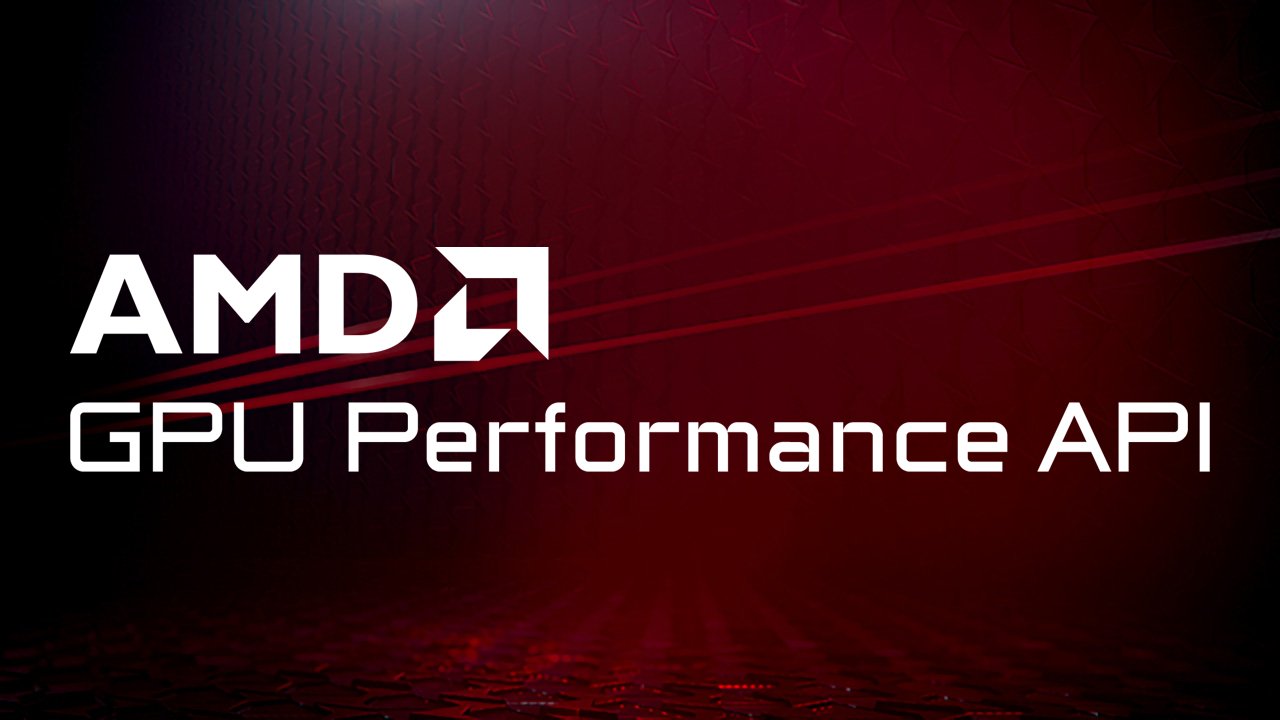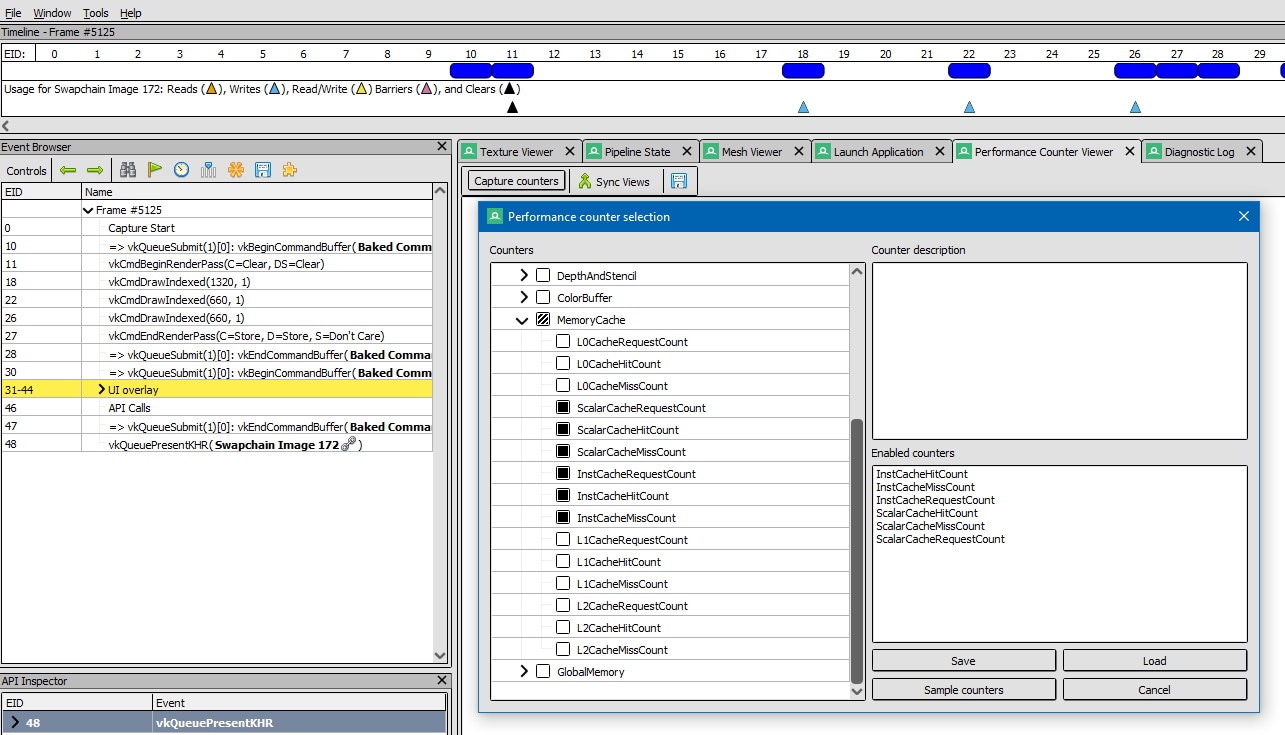
GPUPerfAPI
GPUPerfAPI provides access to GPU Performance Counters. It analyzes performance and execution characteristics of applications using a Radeon™ GPU.

We are pleased to announce the release of GPUPerfAPI v3.7 which includes support for our long-awaited Radeon™ RX 6000 series GPUs.
The GPU Performance API (GPUPerfAPI, or GPA) is a powerful library, providing access to GPU Performance Counters. It can help analyze the performance and execution characteristics of applications using a Radeon™ GPU.
We will now introduce the new features you will find in v3.7, released November 2020.
In this release, we have added four new counters for DirectX® Raytracing (DXR) to analyze raytracing workloads.

We have also included new memory cache counters for analyzing scalar and instruction cache activity of measured workloads in this release. We are planning to add these counters in a future RenderDoc1 release as well.

In addition to new discrete counters, we are adding High-Frequency counters for DirectX® Raytracing workloads as part of the AMD PIX Plugin in upcoming releases of Microsoft® PIX.

1: RenderDoc is a free MIT licensed, stand-alone graphics debugger tool. See https://renderdoc.org/ for more information and the latest builds.
2: Microsoft® PIX a performance and debugging tool from Microsoft®. See https://devblogs.microsoft.com/pix/ for more information and the latest builds.
